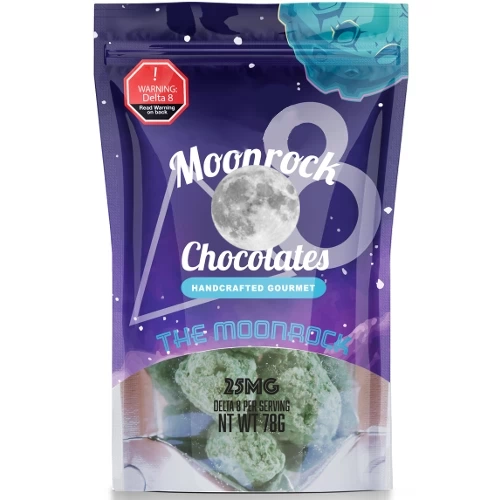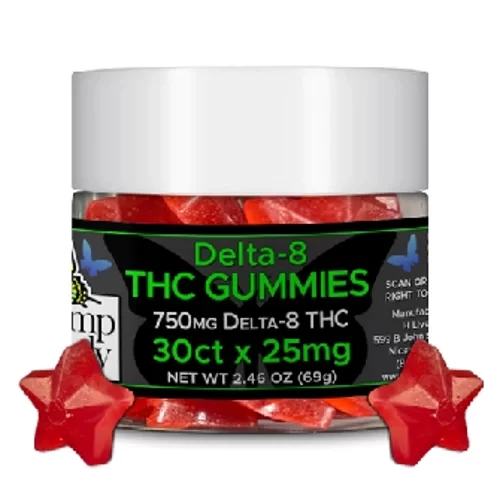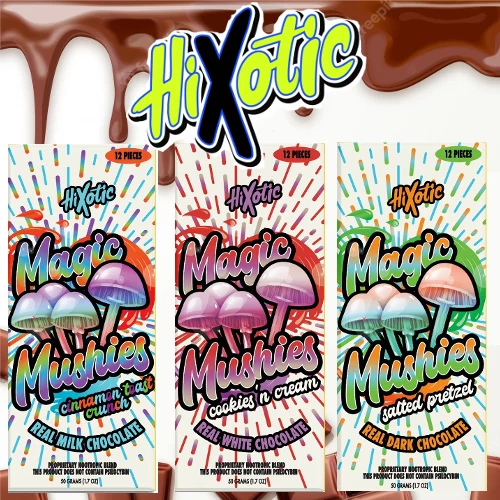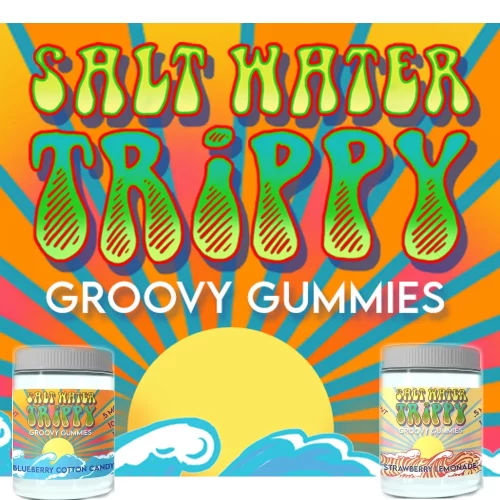Are you tired of the debilitating side effects of cancer treatments? Try Delta 8 For Cancer Treatment, your natural ally that could alleviate vomiting and support your overall well-being during this challenging journey. In this blog article, we’ll look into the promising benefits of Delta 8 for cancer patients, from its ability to prevent vomiting to its potential to support overall wellness. Get ready to discover a game-changer that could revolutionize how we approach cancer care.
Introduction to Delta 8 For Cancer Treatment
Delta 8, also known as delta-8-tetrahydrocannabinol (THC), is a minor cannabinoid found in the cannabis plant. Similar to its well-known cousin, delta-9-THC, it has psychoactive effects when consumed. However, unlike delta-9-THC which is abundant in the cannabis plant, Delta 8 is found in much smaller amounts.
In recent years, there has been growing interest and research into the potential therapeutic benefits of delta 8. One area that has shown promising results is its role in cancer treatment.
The use of Delta 8 For Cancer Treatment dates back centuries. In fact, ancient texts from China and India have documented the use of cannabis for treating various ailments including tumors. With advancements in modern medicine and technology, scientists have been able to isolate specific cannabinoids and study their effects on cancer cells.
How Delta 8 Works in Cancer Treatment
Delta 8 works by interacting with the body’s endocannabinoid system (ECS). The ECS is a network of receptors found throughout the body that helps regulate various physiological processes such as mood, appetite, pain perception, and immune response.
When consumed or applied topically, Delta 8 For Cancer Treatment binds to these receptors and can influence their activity. This interaction can potentially help mitigate symptoms related to cancer treatment such as nausea, vomiting, and loss of appetite.
Understanding the Science behind Delta 8
Delta 8, also known as delta-8-tetrahydrocannabinol (THC), is a minor cannabinoid found in the cannabis plant. It is closely related to delta-9-THC, the main psychoactive compound in marijuana, but with some key differences. While delta-9-THC is known for its psychoactive effects and potential negative side effects such as anxiety and paranoia, delta 8 has a more subtle and less intense impact on the mind.
The science behind Delta 8 For Cancer Treatment lies in its interaction with the body’s endocannabinoid system (ECS). The ECS is a complex network of receptors found throughout the body that helps regulate various physiological processes such as pain sensation, mood, memory, appetite, and immune response. These receptors are activated by cannabinoids like delta 8 and play a crucial role in maintaining balance or homeostasis within the body.
One of the fundamental differences between delta 8 and delta 9 is their binding affinity to these receptors. Delta 9 primarily binds to CB1 receptors found in the brain and central nervous system, leading to its strong psychoactive effects. In contrast, delta 8 has a higher affinity for CB2 receptors located mainly in peripheral tissues like immune cells. This difference explains why it produces less intense psychotropic effects than its cousin.
But what makes Delta 8 For Cancer Treatment particularly promising? Studies have shown that cannabinoids can help manage cancer-related symptoms such as nausea and vomiting caused by chemotherapy or radiation therapy.
Top Benefits of Using Delta 8 For Cancer Treatment:
Delta 8, a lesser-known cannabinoid compound found in the cannabis plant, has been gaining attention for its potential benefits in cancer treatment. While research is still in its early stages, many cancer patients have reported positive effects from using delta 8 as part of their treatment plan. In this section, we will explore the top 5 benefits of using delta 8 for cancer patients.
1. Antiemetic Properties
One of the most debilitating side effects of chemotherapy and other cancer treatments is nausea and vomiting. These symptoms can greatly impact a patient’s quality of life and make it difficult to continue with their treatment. However, studies have shown that delta 8 has potent antiemetic properties, meaning it can help reduce or prevent nausea and vomiting.
Delta 8 works by interacting with receptors in the brain called CB1 receptors, which are responsible for regulating feelings of nausea and vomiting. By binding to these receptors, delta 8 can effectively reduce the severity and frequency of these side effects without causing any psychoactive effects like THC.
2. Pain Relief
Cancer patients often experience chronic pain due to their disease or as a side effect of their treatments. Delta 8 has been found to have powerful analgesic (pain-relieving) properties that can help alleviate this pain. It works by activating CB1 and CB2 receptors in the body’s endocannabinoid system, which plays a crucial role in regulating pain perception.
3. Calming Nausea and Vomiting
Nausea and vomiting are common side effects of cancer treatment, particularly chemotherapy and radiation therapy. These symptoms can be extremely uncomfortable and disruptive to a patient’s daily life, making it difficult for them to maintain a healthy diet or take necessary medications. Fortunately, delta-9-tetrahydrocannabinol (THC), the main psychoactive compound in Delta, has shown promising results in calming nausea and vomiting in cancer patients.
The antiemetic properties of Delta 8 For Cancer Treatment have been studied extensively, with several clinical trials showing its effectiveness in reducing chemotherapy-induced nausea and vomiting (CINV). One study published in the European Journal of Cancer found that using THC as an add-on therapy significantly reduced CINV compared to standard antiemetics alone. Another study published in the New England Journal of Medicine reported similar results, with 68% of patients experiencing complete relief from CINV after taking THC.
Not only does THC help alleviate nausea and vomiting, but it also helps increase appetite. Cancer treatments such as chemotherapy can often cause loss of appetite, leading to weight loss and malnutrition. By calming these symptoms, Delta can help improve a patient’s overall well-being by allowing them to eat nutritious meals and maintain a healthy weight.
Moreover, Delta 8 For Cancer Treatment can reduce nausea and vomiting and can also improve the medication adherence schedule for cancer patients. Many medications prescribed during cancer treatment can cause gastrointestinal side effects such as upset stomach or diarrhea. This can make it challenging for patients to take their perscribed meds. Delta 8 may help with that.
4. Boosting Appetite:
One of the most common side effects of cancer treatment is loss of appetite, which can greatly impact a person’s overall well-being and ability to fight the disease. However, Delta 8 For Cancer Treatment, a compound found in cannabis, has been shown to have the potential to boost appetite and relieve nausea and vomiting in cancer patients.
Research has shown that using Delta 8 For Cancer Treatment can directly stimulate the body’s endocannabinoid system, which plays a crucial role in regulating hunger and digestion. This stimulation can lead to an increase in appetite and food intake, helping patients maintain their weight and strength during treatment.
Additionally, Delta 8 For Cancer Treatment has been found to have anti-nausea properties, making it an effective option for managing chemotherapy-induced nausea and vomiting. These symptoms not only make it difficult for patients to eat but also contribute to dehydration, fatigue, and overall discomfort.
In one study conducted on cancer patients undergoing chemotherapy, those who were given Delta-8-THC reported a significant increase in appetite compared to those who received a placebo. Another study showed that 73% of cancer patients experienced relief from nausea after using Delta 8 For Cancer Treatment.
Furthermore, unlike some medications prescribed for increasing appetite or reducing nausea and vomiting, Delta-8 does not carry the risk of addiction or overdose. This makes it a safer alternative for cancer patients who are already dealing with numerous treatments and medications.
Cancer treatment can often be a physically and emotionally taxing experience for patients. From chemotherapy to radiation therapy, these treatments can cause various side effects such as nausea, vomiting, and pain. This is where using Delta 8 For Cancer Treatment comes in as a promising ally in cancer therapy– providing relief from these uncomfortable symptoms.
5. Easing Pain Relief with Delta
One of the most debilitating side effects of cancer treatment is pain. Cancer itself can cause pain as it grows and spreads in the body, but chemotherapy and radiation therapy can also cause discomfort and soreness in different parts of the body. As a result, cancer patients may find it difficult to carry out their daily activities or enjoy quality sleep due to constant pain.
Delta 8 For Cancer Treatment has shown significant potential in easing pain relief for cancer patients. Research has found that one of the main compounds found in Delta 8, interacts with receptors in the brain that are responsible for regulating pain perception. By binding to these receptors, THC reduces the intensity of pain signals sent by the brain, providing relief to those experiencing chronic or acute pain.
Moreover, Delta 8’s anti-inflammatory properties have also been shown to provide an additional layer of pain relief for cancer patients. Inflammation is a natural response that occurs when our bodies try to fight off infections or heal injuries. However, prolonged inflammation can lead to increased sensitivity to pain and contribute to chronic conditions like arthritis and neuropathy – both common among cancer patients.
6. Improving Mental Health
Mental health is a critical aspect of overall well-being, especially for cancer patients undergoing treatment. The emotional and psychological toll of a cancer diagnosis can be overwhelming and may lead to anxiety, depression, and other mental health issues. Additionally, the side effects of cancer treatments such as chemotherapy can also greatly impact a patient’s mental health.
Consuming Delta 8 For Cancer Treatment has been shown to have therapeutic benefits for improving mental health in cancer patients. It acts on the brain’s endocannabinoid system, which regulates mood, emotions, and stress response.
One of the most significant ways it can improve mental health in cancer patients is by reducing anxiety and depression. Studies have shown that it can decrease feelings of worry and sadness while increasing feelings of relaxation and happiness. This is crucial for cancer patients who often experience high levels of distress due to their illness.
Moreover, Delta 8 For Cancer Treatment has been found to have anti-inflammatory properties that can help reduce inflammation in the brain associated with conditions like anxiety and depression. It also stimulates the release of serotonin, a neurotransmitter responsible for regulating mood. Low levels of serotonin have been linked to an increased risk of developing depression or worsening its symptoms.
Another way Delta 8 For Cancer Treatment can improve mental health is by reducing nausea and vomiting caused by chemotherapy treatments. These side effects not only cause physical discomfort but also take a significant toll on a patient’s mental well-being. Vomiting episodes can be traumatic for some individuals and may
7. Preventing Vomiting During Cancer Treatments
Cancer treatments, such as chemotherapy and radiation therapy, can cause a variety of side effects in patients. One of the most common and distressing side effects is vomiting. Vomiting not only affects a patient’s physical well-being but also their emotional and mental state. It can lead to dehydration, and malnutrition, and interfere with the efficacy of cancer treatment.
Fortunately, there are ways to prevent or minimize vomiting during cancer treatment. This section will discuss different strategies that have been found to be effective in preventing vomiting in cancer patients.
1. Antiemetic Medications:
Antiemetic medications are drugs specifically designed to prevent or reduce nausea and vomiting. They work by blocking signals in the brain that trigger these symptoms. These medications are often prescribed along with chemotherapy or radiation therapy to prevent or reduce the severity of nausea and vomiting.
There are different types of antiemetic medications available, including serotonin receptor antagonists, corticosteroids, dopamine antagonists, and cannabinoids. Your doctor will determine which type is best suited for your specific situation based on factors such as your medical history and type of cancer treatment.
It is essential to take antiemetics as prescribed by your doctor to achieve maximum effectiveness in preventing vomiting during cancer treatment.
2. Acupuncture:
Acupuncture is a traditional Chinese medicine practice that involves inserting thin needles into specific points on the body to stimulate nerve endings and promote healing. Several studies have shown that acupuncture can effectively reduce nausea and vomiting caused by cancer treatments.
How to Incorporate Delta 8 into Your Cancer Treatment Plan
Incorporating Delta 8 into your cancer treatment plan can provide numerous benefits for both physical and mental well-being. This natural compound has been shown to alleviate symptoms commonly associated with cancer treatments, such as vomiting and nausea, while also supporting overall health and well-being. One of the most popular ways to consume D8 is by consuming gummies that are infused with Delta 8.
Here are some key ways in which you can incorporate Delta 8 into your cancer treatment plan:
1. Consult with Your Doctor: Before making any changes to your current treatment plan, it is important to consult with your doctor or healthcare provider. They will be able to evaluate your individual situation and determine if incorporating Delta 8 is the right choice for you.
2. Choose the Right Delivery Method: Delta 8 can be consumed in various forms including edibles, tinctures, capsules, and vaping oils. The method of consumption may vary based on personal preference and specific needs. For example, if you are experiencing nausea or vomiting from other medications, a sublingual tincture may be the best option as it bypasses the digestive system.
3. Start Slowly: If you are new to using Delta 8 or have never used cannabis products before, it is important to start with a low dosage and gradually increase as needed. This will allow your body to acclimate to the effects of Delta 8 without overwhelming it.
4. Use During Chemotherapy Sessions: Many cancer patients experience extreme discomfort during chemotherapy sessions which can make them hesitant about undergoing further treatments. However, incorporating Delta 8 into these sessions has been
Potential Risks
1. Nausea and Vomiting
One of the most common side effects of chemotherapy is nausea and vomiting. This occurs as a result of the body’s reaction to strong medication used in cancer treatment. The constant feeling of queasiness can lead to loss of appetite and weight loss, making it difficult for patients to receive adequate nutrition during their treatment.
However, studies have shown that using Delta 8 For Cancer Treatment is highly effective in preventing nausea and vomiting caused by chemotherapy. It works by blocking certain receptors in the brain that trigger these symptoms, allowing patients to feel more comfortable during their treatment.
2. Fatigue
Fatigue is another common side effect of cancer treatment which can greatly impact a patient’s quality of life. The intense fatigue experienced by cancer patients can make everyday activities such as work or household chores challenging.
Taking Delta 8 For Cancer treatment has been found to have an energizing effect on patients undergoing chemotherapy or radiation therapy. By improving energy levels, it allows them to carry out daily tasks more easily without feeling drained or exhausted.
3. Weakened Immune System
Cancer treatments such as chemotherapy and radiation therapy not only target cancer cells but also damage healthy cells in the body. This can potentially weaken the immune system.
Are you ready to try Delta 8 For Cancer Treatment? See our Sweet 8 Brand Delta 8 Gummies below.
Warning: This product has not been approved by the FDA. Is not intended to diagnose, treat, prevent, or cure any condition or disease. Delta 8 products should not be used by pregnant or breastfeeding women. Not to be used while operating a motor vehicle or machinery. Always consult a doctor before using any new botanical product. By using this website, you agree with our Terms of Service page stating that you are over 18 years old and of legal age to buy Delta 8 products at your location.
Age verification with photo ID requiredduring checkout.
NOTE: We do not ship Delta 8 to states where is is not permitted.











